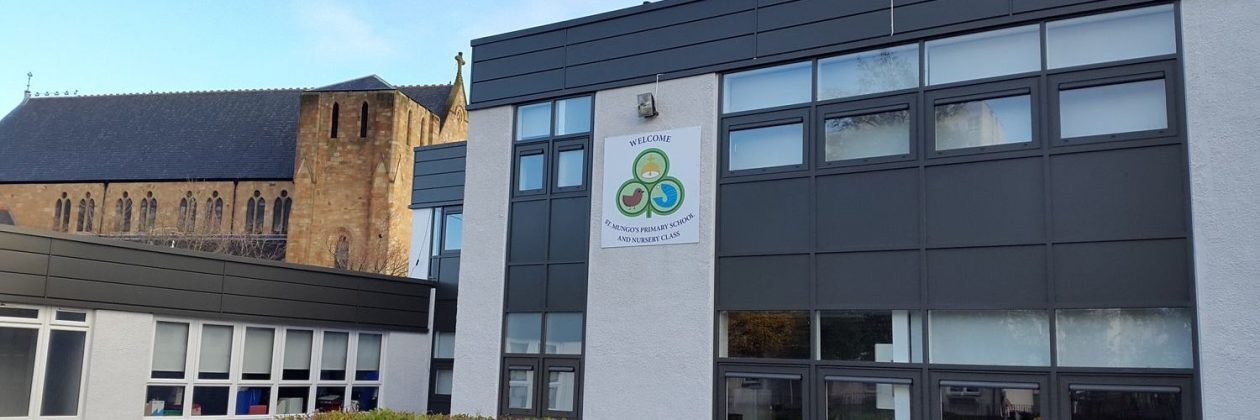Additional Information for Parents
Visiting Specialists/Learning Visits
We may employ visiting specialists to enhance the learning that is taking place in class. Alternatively, we may arrange for a class to visit a particular place to apply what they have learned in a real life context.
We will always let you know in advance of any visits that will be taking place.
Assessment & Reporting
All children are assessed both formally and informally throughout the year. This allows children and their teachers to identify their strengths and areas for improvement. A variety of assessment methods are used to enable staff to pass on information to parents about the progress of their child. Assessment records are kept by the class teacher and form the basis of discussion at Parents’ Evenings twice per year. An annual report is sent to parents towards the end of each school year.
If you have any concerns about your child’s progress please see your child’s teacher at their earliest opportunity.
Class teachers meet with the Headteacher to discuss the planned work each term. During these meetings, individual children are discussed and children are identified who may require early intervention to support their learning.
Pupil Profiles
Every child leaving primary school in Scotland has their key achievements in school, at home and in the community documented within a P7 profile. The content of the profile is decided by the young person. The profile is a positive record of their achievements and emphasis their strengths. The profile provides a valuable way for learners to share valuable information about their achievements with their parents and teachers in secondary school.
Learner Voice
Children are at the heart of our learning at St Mungo’s and as such we consult them in their learning and lives. We have a newly elected Learner Council – two members from each class who were congratulated and welcomed into office on the 27th September 2022 by our own Townhead Councillor, Cllr Phillip Bratt. We also have a very active Eco Council who are currently guiding us towards more sustainable ways of learning and living and have worked hard to make sure we maintain our ECO award. We are ably represented on the safety front too with two reps from P6 and P7 who are our Junior Road Safety Officers.
Support for Pupils
The school has a duty to ensure that all pupils have equal access to the curriculum, with appropriate support for their needs if required. This applies to the content of lessons, teaching strategies and minor adaptations to the school environment. There are a wide range of factors which may act as a barrier to learning. We are committed to working closely with parents and carers to ensure that they are fully involved in any decisions about support for their children’s needs.
Any parent or carer seeking further advice regarding this policy should contact the Headteacher in the first instance.
If you are concerned about your child’s support needs please contact our Meeting Learners’ Needs Coordinator; Mrs Anderson
Further information relating to additional support needs is available on the Glasgow City Council website –
http://www.goglasgow.org.uk/pages/show/811
Information on the Glasgow City Councils’ Parental Involvement Strategy can also be found at https://www.glasgow.gov.uk/index.aspx?articleid=17870
Child Protection
The Child Protection Coordinator is Mrs McNulty. All of our staff are trained in the use of Management Circular 57 which is Glasgow’s Procedure for Child Welfare and Safety.
GIRFEC and the Named Person
GIRFEC isn’t an extra thing people have to do. It’s a way for those who support children to work differently, making sure that they are all on the same page. Where needed, GIRFEC links day-to-day work in education, health, policing, social work and the voluntary sector – in fact any organisation whose staff come into direct contact with children. It makes it easier for those different organisations to communicate consistently with each other, and with parents, carers, children and young people.
GIRFEC provides a structure that helps people to work in the same way and use the same language. This allows discussions with the child and their family to focus on what is good in a child’s life, and what might need attention or support.
It’s the bedrock for all children’s services and can also be used by practitioners in adult services who work with parents or carers.
The approach helps practitioners focus on what makes a positive difference for children and young people – and how they can act to deliver these improvements. Getting it right for every child is being threaded through all existing policy, practice, strategy and legislation affecting children, young people and their families.
What Getting it Right for Every Child means:
For children, young people and their families:
- They understand what is happening and why
- They have been listened to carefully and their wishes have been heard and understood
- They will feel confident about the help they are getting
- They are appropriately involved in discussions and decisions that affect them
- They can rely on appropriate help being available as soon as possible
- They will have experienced a more streamlined and co-ordinated response from practitioners
For practitioners:
- Putting the child or young person at the centre and developing a shared understanding within and across agencies
- Using common tools, language and processes, considering the child or young person as a whole, and promoting closer working where necessary with other practitioners
If you would like to access support from the Named Person Service, please contact the school. (For Early Years establishments this should be “please contact your Health Visitor”)
The Named Person in St Mungo’s Primary School is Mrs McNulty.
School Improvement
On an annual basis, you will receive a copy of our Standards and Quality report. Copies from previous years are available from the school office. The Standards and Quality report highlights progress in key curricular areas such as literacy, numeracy and health & wellbeing. Our priorities for improvement are detailed in our School Improvement Plan which is discussed with our Parent Council and shared with all stakeholders at the beginning of each academic year. Any parent or carer seeking a copy of the full plan can obtain this from the school office.
Our themes for Improvement in 2024-2025 include:
- Improve achievement and progress through development of pedagogy of Questioning evidenced through key curricular areas
- Improve achievement and progress through development of pedagogy of Assessment evidenced through key curricular areas.
- Improve pedagogy and achievement and progress in Phonics in the Early Years
We are also part of Scotland’s Attainment Challenge; Glasgow’s Improvement Challenge.
You can find a report of our most recent HMIe inspection at:
Promoting Positive Relationships
Children’s Rights as outlined in the UNCRC (United Nations Convention on the Rights of the Child) are fundamental to a good school ethos. Adults in our school will work with children to ensure they are aware of their rights and fully respect the rights of others. Therefore, the approach within St Mungo’s Primary School is to build a positive ethos that demonstrates care and respect for all. Positive behaviour is recognised and celebrated. Our school operates a system of class charters to set out expected behaviour. We have a Recognition Board in every teaching space so that children are striving to be recognised and rewarded for best conduct first and foremost. This is celebrated through Fun 31, treats, awards at assemblies and certificates sent home to parents etc.
The highest standards of behaviour are expected of pupils at all times. Where this is not the case, a variety of sanctions are used. Parents are asked to co-operate with the school in encouraging a sense of responsibility and good behaviour in their children.
Please ask for a copy of our Promoting Positive Relationships policy so that you can help support the school in maintaining high standards.
Home Learning
Continuing to learn at home helps children to achieve more and is a vital part of our partnership with parents. Please check your child’s schoolbag for communication about home learning and specific tasks. A copy of our homework policy is obtainable from our school office.
Information on the Glasgow City Councils’ Parental Involvement Strategy can also be found at https://www.glasgow.gov.uk/index.aspx?articleid=17870
Parent Council
We have a very active Parent Council that represents the views of all parents. All parents are welcome to attend Parent Council meetings and can become members at the AGM in September/ October. We would love to see as many new faces as possible. Parent Council minutes are available on request from the school office.
Lunchtime and after school activities
We have a wide range of activities and clubs that run Monday – Thursday to enhance the learning experience. These currently include dance, athletics, running, walking club, health and wellbeing club, and football. Please check your child’s schoolbag for information as clubs are popular and places usually limited.
We have excellent relationships with our Active Schools Coordinator who assists in organising these activities.
Policies
All school policies can be obtained by contacting the school office.
Glasgow City Council policies and procedures are available online.
Parent Concern
If you have a concern regarding your child, please speak to the class teacher in the first instance. If the concern is not resolved, a member of the Management Team will become involved. In the unlikely event the concern is still unresolved; it will be escalated to the Headteacher. Please understand that it is not always possible to see a parent at the time of approach due to other commitments, however we will endeavour to do our best and make contact on the same day.
Comments & Complaints
In St. Mungo’s Primary School & Nursery Class we aim to have positive relationships across our school community. However, if you have a comment or complaint about any aspect of school life, please contact the Headteacher in the first instance.
Glasgow City Council complaints procedures are available here.
The above website also includes information on data protection and freedom of information.
Useful addresses:
Education Services
City Chambers East
40 John Street
Glasgow G1 1JL
Tel: 0141 287 2000
Equal Opportunities
All Primary and Pre 5 services should reflect the council’s equal opportunities policies and be anti-racist, anti-sexist, multi-cultural and recognise the rights of both men and women to work or care for children. Our provision takes account of the needs of people who have special needs or chronic illness. These principles are reflected in the criteria used to admit children to the nursery and in the curriculum of all the establishments.
Dealing with Racial Harassment
The Race Relations Act 1976 makes it unlawful to discriminate against someone because of his/her colour, race, nationality, ethnic or national background. The Act makes it the duty of Glasgow City Council to eliminate unlawful racial discrimination. In 1999 the guidelines, “Dealing with Racial Harassment” were issued to assist all teaching staff in dealing with such incidents.
The adoption of an anti-racist approach should be seen as part one of the continuing attempt to improve the quality of education.
No smoking environment Smoking is not permitted on our school grounds.


